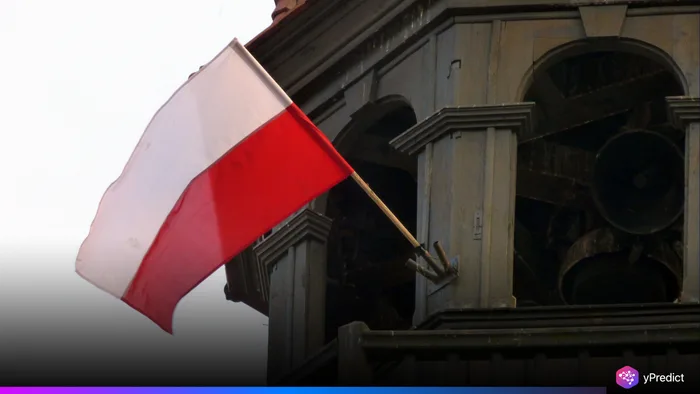
Poland is launching a tax-free investment scheme to drive long-term growth and boost household participation in the economy. The government expects to attract around $27 billion over the first three years. That equals nearly 100 billion zlotys, or 2.5% of the national GDP.
This plan arrives at a crucial moment. Poland’s economy still grows faster than most EU countries, but domestic investment has slowed recently. Policymakers see this trend as a threat to future growth. To counter it, they want to unlock household savings and channel them into productive sectors.
With global uncertainty rising and monetary conditions tightening, Poland needs fresh strategies. This initiative gives citizens strong financial incentives to invest directly in the country’s future.
Government Strategy Focuses on Capital Market Revival
Finance and Economy Minister Andrzej Domanski outlined the strategy during a press interaction, saying the country urgently needs to unlock domestic capital. According to Domanski, the tax-free investment scheme is not just about increasing individual wealth, but also about strengthening national competitiveness and security.
Under the current system, individual investors pay a flat 19% tax on profits from savings accounts, bonds, and shares. This model has discouraged long-term participation in the capital markets, especially among middle-class households. To fix this, the new plan introduces Personal Investment Accounts, known in Polish as OKIs, with zero tax on the first 100,000 zlotys of profit.
Beyond that threshold, the government will apply a modest 0.8% to 0.9% tax on gains. This structure is designed to reward modest savers while ensuring that high-net-worth investors still contribute fiscally.
Household Savings to Play a Bigger Role in Growth
The government estimates that activating household savings through these accounts could reshape Poland’s investment landscape. With the country seeking new drivers for innovation and productivity, tapping into its citizens’ savings becomes not just beneficial but necessary.
Domanski emphasized that it is important for Poland’s economy to grow “dynamically” and that the state needs to facilitate that dynamism through “new tools.” By encouraging taxes to be treated as incentives for fostering long-term investments, the plan could assist in constructing a more durable footing for infrastructure, green energy and high-tech investment.
If passed by the legislature, the tax incentives will begin in the second half of 2026. Full implementation is anticipated by 2027, with a fiscal cost projected to be in the range of 250 to 300 million zlotys in the first full year.
A Push to Modernize the Polish Investment Culture
The tax-exempt investment vehicle also signifies a cultural change. Many Polish families still do so predominantly using bank deposits or cash, fearing the uncertainties of the stock market. Domanski reminds us that the point of the tax exemption is to give people basically the courage to invest in capital markets to go beyond cash and bank deposit options.
If this happens, there will be more participation in investments in equity, bonds, mutual funds and regulated investment instruments. The continued existence of a vibrant capital market represents more opportunity for Polish companies and enables them to tap into Polish household capital rather than just relying on foreign capital or borrowing.
By motivating long-term disciplined investors, the government hopes to send a clear message that it lays belief that saving and investing are core ingredients in both personal and national success. With inflation around where it was before, perhaps the timing is right to start thinking about your next financial steps.
International Confidence and Domestic Vision
Poland’s bold scheme comes in a moment of uncertainty when global institutions like the IMF and World Bank are paying closer attention than ever to how emerging economies manage investment gaps. Domanski presented parts of the plan earlier this year at the IMF and World Bank spring meetings in Washington, D.C. This shows Poland intends to harmonize its own growth strategies with global best practices.
While issues remain, particularly of financial literacy and equitable access to these new accounts, there is a real opportunity here. The use of tax relief, incredibly low entry points and overall definition of Poland’s own growth presents a powerful package.
This tax-free investment scheme represents more than just a fiscal incentive. It’s a national bet on the potential of household savings to drive economic strength and self-reliance. As Poland looks ahead, the plan could reshape how families think about money and how the country funds its future.







